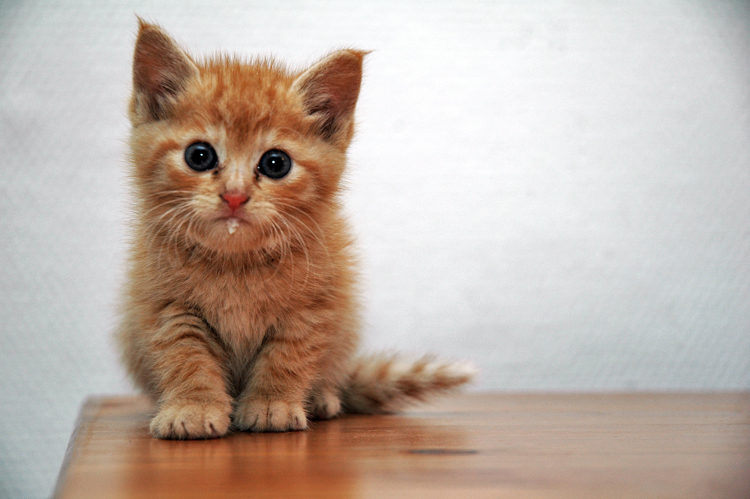Drooling may be common in dogs, but when your feline friend starts doing it, you may raise an eyebrow (or two). Sure, cats drool for various reasons, and while some might be completely harmless, others can hint at something more serious. So, what’s really going on when your kitty starts to dribble?
Let’s explore six surprising reasons why your cat might be drooling and how you can keep that purrfect companion happy and healthy.
Dental Woes: Is Your Cat’s Mouth in Trouble?
How dental health impacts your cat’s drooling habits.
One of the most common reasons behind a drooling cat is dental trouble. Just like humans, cats can suffer from a variety of oral health issues. Plaque buildup, gum disease, and even tooth decay can cause discomfort in your cat’s mouth, leading to excess saliva production.
Your kitty may also drool if they’ve developed oral ulcers or infections. These can be caused by bacteria or dental injuries. If you notice your cat drooling while also avoiding food or pawing at their face, it might be time for a vet visit to check their pearly whites.
And let’s face it, we all know how it feels to avoid the dentist! Cats might not complain (well, not verbally), but their drool tells the story.
Feeling Queasy? Motion Sickness and Nausea
How nausea can lead to feline drooling.
Cats are natural-born travelers…said no one ever. While some cats might love a cozy car ride, others could get queasy from the motion. Much like humans, cats can experience motion sickness, and one of the telltale signs is—yep, you guessed it—drooling.
If your kitty starts drooling excessively during car rides, it’s probably due to an upset stomach. Cats can also drool when they’re feeling nauseous due to underlying health issues or even certain medications.
So, if you’re planning a trip and your cat suddenly transforms into a puddle of drool, consider speaking to your vet about motion sickness remedies. After all, nobody wants a car ride to turn into a wet and wild adventure!
Stress and Anxiety: A Drool-Worthy Response
How stress and anxiety can trigger drooling in your cat.
Does your cat start drooling when you move furniture around or bring home a new pet? Drooling in response to stress or anxiety is another common feline quirk. Cats thrive on routine, and when that routine is disrupted, their anxiety levels can skyrocket.
This anxiety can manifest in physical ways, including—you guessed it—drooling. Whether it’s a new environment, a change in your daily schedule, or an unexpected visitor, stress can make your kitty a little extra drooly.
If your cat’s anxiety is causing frequent drooling, try to identify and minimize the stressors. Providing a calm, predictable environment can help reduce both your cat’s stress and the extra saliva. Because let’s be honest, nobody likes drooling when they’re anxious (not even us humans!).
Foreign Objects: Something Stuck?
How foreign objects can lead to sudden drooling in cats.
Cats are curious by nature, which means they might occasionally get something stuck in their mouths. Whether it’s a piece of string, a small toy, or even a plant, a foreign object can trigger drooling as your cat attempts to remove it.
If you suspect something is stuck in your cat’s mouth, you might notice not just drooling, but pawing at the face, difficulty eating, or unusual sounds. It’s important to act quickly. If you can’t safely remove the object yourself, head to the vet for assistance.
Remember, a curious cat is a drooling cat—sometimes for reasons they’re not too thrilled about!
Heatstroke: The Hot and Drooly Truth
How overheating can make your cat drool more than usual.
Cats may love basking in the sun, but even they can get too hot. Excessive drooling can be a sign that your feline friend is overheating. Heatstroke is a serious condition for cats, and drooling, along with rapid breathing and lethargy, could indicate that your kitty is getting too hot to handle.
If your cat is drooling on a hot day or after being outside for a while, it’s crucial to get them into a cooler environment, provide fresh water, and monitor their behavior closely. If they seem weak or disoriented, contact your vet right away.
Because a dröoling, overheated kitty is no laughing matter!
Serious Health Conditions: When Drooling is a Red Flag
When drooling could signal something more serious.
While droöling can be harmless or related to manageable conditions, it can sometimes indicate more serious health issues. Neurological disorders, kidney disease, and even poisoning can lead to excessive drooling in cats.
If your cat’s droöling is accompanied by other unusual symptoms—like vomiting, twitching, or changes in behavior—take it seriously. These signs could indicate something more severe, and it’s always better to err on the side of caution.
Your vet can perform the necessary tests to rule out any major health concerns. After all, keeping your kitty healthy and happy is priority number one!
